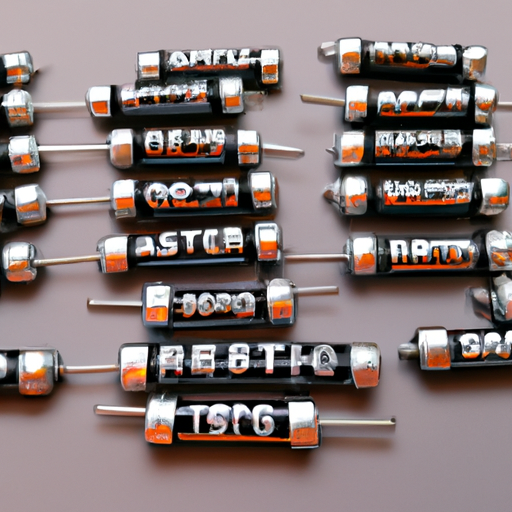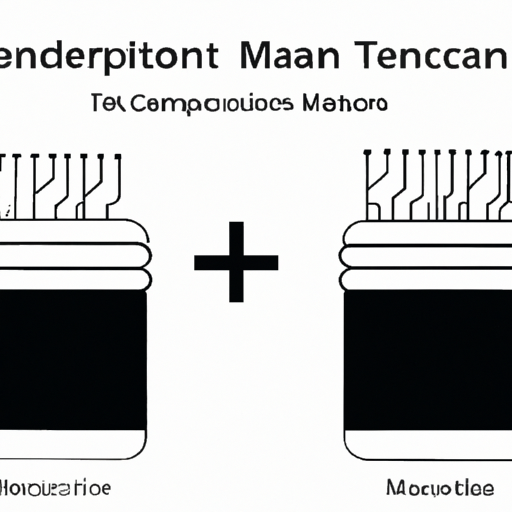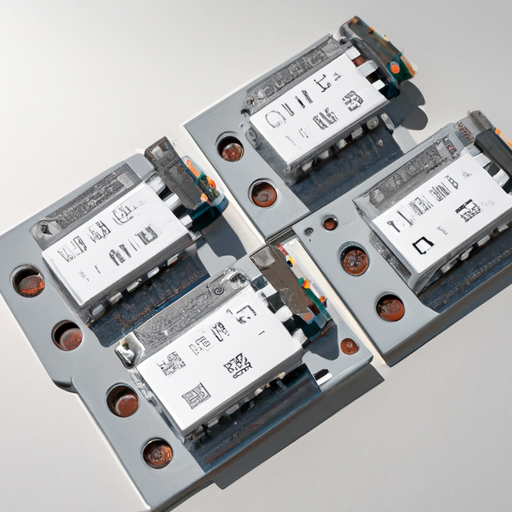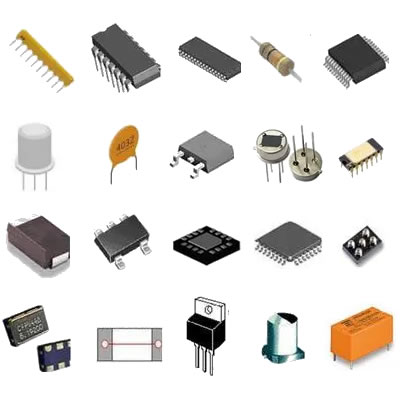What is the role of resistor 2 products in practical applications?
The Role of Resistor 2 Products in Practical Applications
I. Introduction
In the world of electronics, resistors play a crucial role in controlling the flow of electric current. Among the various types of resistors, Resistor 2 products stand out due to their unique characteristics and applications. This blog post aims to explore the definition, characteristics, and practical applications of Resistor 2 products, highlighting their importance in various industries and the future trends shaping their development.
II. Understanding Resistor 2 Products
A. Definition and Characteristics
Resistor 2 products refer to a specific category of resistors that are designed for precision and reliability in electronic circuits. These resistors are characterized by their ability to maintain stable resistance values under varying conditions, making them ideal for applications that require accuracy.
1. **Types of Resistors**: Resistor 2 products can be classified into several types, including fixed resistors, variable resistors (potentiometers), and specialized resistors like thermistors and photoresistors. Each type serves a unique purpose in electronic circuits.
2. **Specifications and Ratings**: Resistor 2 products come with specific ratings, including resistance value (measured in ohms), power rating (measured in watts), and tolerance (the degree to which the actual resistance can vary from the stated value). These specifications are critical for ensuring that the resistor performs as intended in a circuit.
B. Common Materials Used in Resistor 2 Products
The materials used in the construction of Resistor 2 products significantly influence their performance and application.
1. **Carbon Composition**: These resistors are made from a mixture of carbon and a binding material. They are known for their high resistance values and are commonly used in applications where cost is a concern.
2. **Metal Film**: Metal film resistors are made by depositing a thin layer of metal onto a ceramic substrate. They offer high precision and stability, making them suitable for applications that require accurate resistance values.
3. **Wire-Wound**: Wire-wound resistors are constructed by winding a metal wire around a core. They are capable of handling high power levels and are often used in power applications.
C. Comparison with Other Resistor Types
Compared to other resistor types, Resistor 2 products offer superior performance in terms of precision and stability. While carbon composition resistors may be more cost-effective, they lack the accuracy and temperature stability of metal film and wire-wound resistors. This makes Resistor 2 products a preferred choice in applications where reliability is paramount.
III. Practical Applications of Resistor 2 Products
A. Consumer Electronics
Resistor 2 products are widely used in consumer electronics, playing a vital role in the functionality of various devices.
1. **Role in Audio Devices**: In audio equipment, resistors are used to control volume levels and filter signals. Resistor 2 products ensure that audio signals are transmitted accurately, enhancing sound quality.
2. **Functionality in Televisions and Computers**: Resistors are essential in televisions and computers for tasks such as voltage division and signal conditioning. Resistor 2 products help maintain the integrity of signals, ensuring optimal performance.
B. Industrial Applications
In industrial settings, Resistor 2 products are integral to automation and control systems.
1. **Use in Automation and Control Systems**: Resistors are used in sensors and control circuits to regulate current and voltage levels. This is crucial for the proper functioning of automated systems in manufacturing and processing.
2. **Importance in Power Management**: Resistor 2 products are employed in power management systems to dissipate excess energy and protect sensitive components from damage. Their reliability ensures that industrial systems operate smoothly.
C. Automotive Applications
The automotive industry relies heavily on Resistor 2 products for various electronic systems.
1. **Role in Vehicle Electronics**: Modern vehicles are equipped with numerous electronic systems, including infotainment, navigation, and engine control. Resistor 2 products are used to ensure these systems function correctly and efficiently.
2. **Safety Systems and Sensors**: Resistors play a critical role in safety systems, such as airbags and anti-lock braking systems (ABS). They help monitor and control the performance of sensors, ensuring the safety of passengers.
D. Telecommunications
In the telecommunications sector, Resistor 2 products are essential for signal processing and transmission.
1. **Signal Processing and Transmission**: Resistors are used in various components, such as amplifiers and filters, to manage signal levels and reduce noise. Resistor 2 products enhance the quality of communication signals.
2. **Importance in Network Devices**: Resistor 2 products are found in routers, switches, and other network devices, where they help regulate current and voltage levels, ensuring reliable data transmission.
IV. Advantages of Using Resistor 2 Products
The use of Resistor 2 products offers several advantages that make them a preferred choice in various applications.
A. Precision and Reliability
One of the primary benefits of Resistor 2 products is their precision. They maintain stable resistance values, ensuring that electronic circuits function as intended. This reliability is crucial in applications where accuracy is paramount.
B. Temperature Stability
Resistor 2 products exhibit excellent temperature stability, meaning their resistance values do not fluctuate significantly with changes in temperature. This characteristic is essential in environments where temperature variations are common.
C. Cost-Effectiveness
While Resistor 2 products may be more expensive than some alternatives, their long-term reliability and performance often justify the investment. In many cases, the cost savings from reduced failures and maintenance outweigh the initial expense.
D. Versatility in Design
Resistor 2 products come in various sizes and configurations, making them versatile for different design requirements. This adaptability allows engineers to incorporate them into a wide range of applications.
V. Challenges and Limitations
Despite their advantages, Resistor 2 products also face challenges and limitations.
A. Heat Dissipation Issues
One of the primary challenges is heat dissipation. Resistors convert electrical energy into heat, and excessive heat can lead to failure. Proper thermal management is essential to ensure the longevity of Resistor 2 products.
B. Tolerance and Accuracy Concerns
While Resistor 2 products are known for their precision, variations in manufacturing processes can lead to tolerance issues. Ensuring consistent quality is crucial for maintaining their reliability.
C. Environmental Factors Affecting Performance
Environmental factors, such as humidity and exposure to chemicals, can impact the performance of Resistor 2 products. Engineers must consider these factors when designing circuits to ensure optimal performance.
VI. Future Trends in Resistor 2 Products
The future of Resistor 2 products is shaped by several trends that promise to enhance their performance and applicability.
A. Innovations in Materials and Technology
Advancements in materials science are leading to the development of new resistor types with improved performance characteristics. Innovations such as thin-film technology and nanomaterials are paving the way for more efficient resistors.
B. Miniaturization and Integration in Circuits
As electronic devices become smaller and more compact, the demand for miniaturized resistors is increasing. Resistor 2 products are being designed for integration into smaller circuits without compromising performance.
C. Sustainability and Eco-Friendly Designs
With growing concerns about environmental sustainability, manufacturers are exploring eco-friendly materials and production processes for Resistor 2 products. This trend aims to reduce the environmental impact of electronic components.
VII. Conclusion
In conclusion, Resistor 2 products play a vital role in various practical applications across multiple industries. Their precision, reliability, and versatility make them indispensable in consumer electronics, industrial automation, automotive systems, and telecommunications. While challenges such as heat dissipation and environmental factors exist, ongoing innovations and trends promise to enhance their performance and sustainability. As technology continues to advance, the importance of Resistor 2 products in driving innovation and improving electronic systems will only grow.
VIII. References
1. Academic journals on electronics and resistor technology.
2. Industry reports detailing the applications and advancements in resistor products.
3. Books and online resources focused on electronic components and circuit design.
This blog post provides a comprehensive overview of the role of Resistor 2 products in practical applications, emphasizing their significance in modern technology and the future of electronic design.







